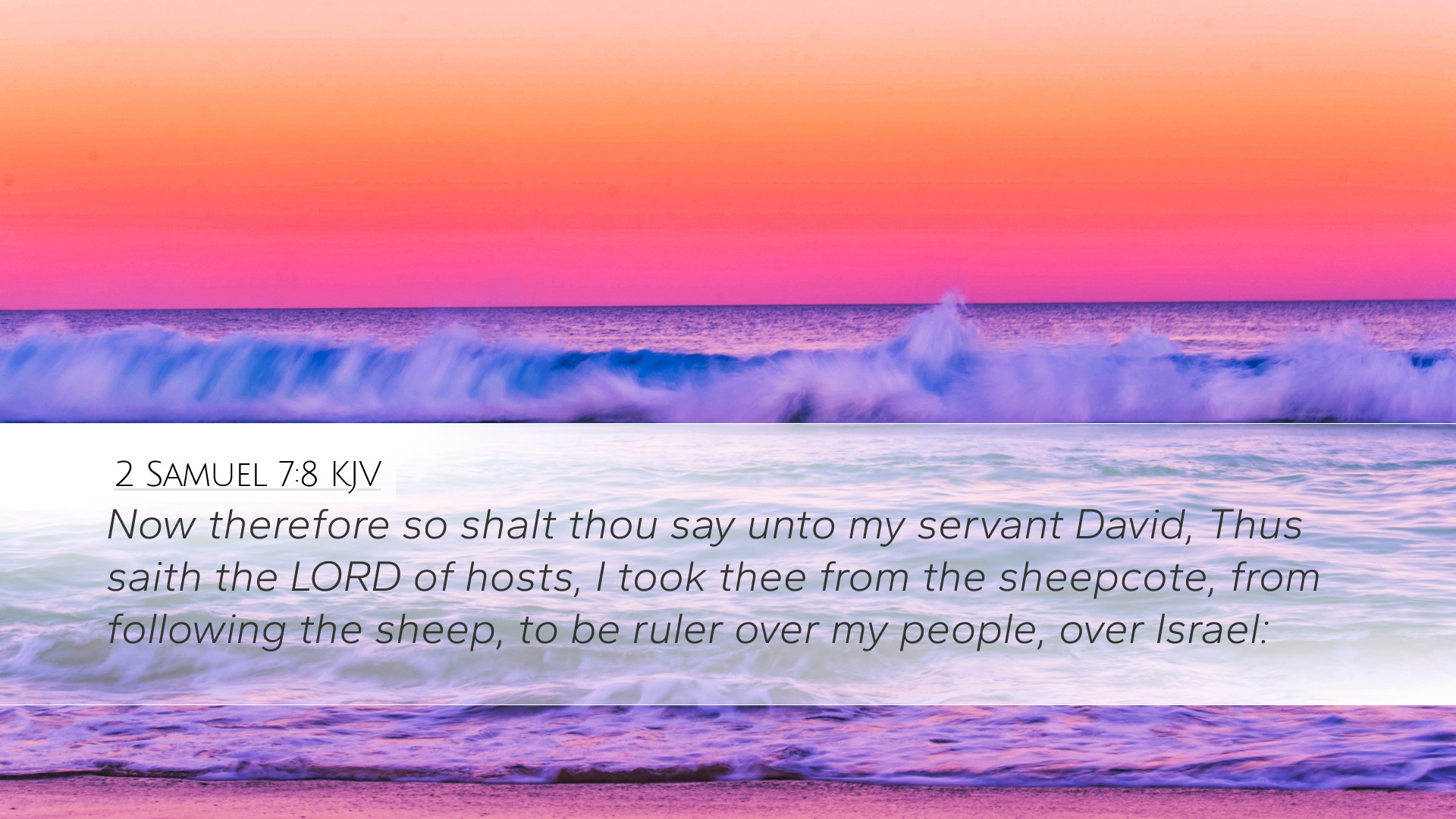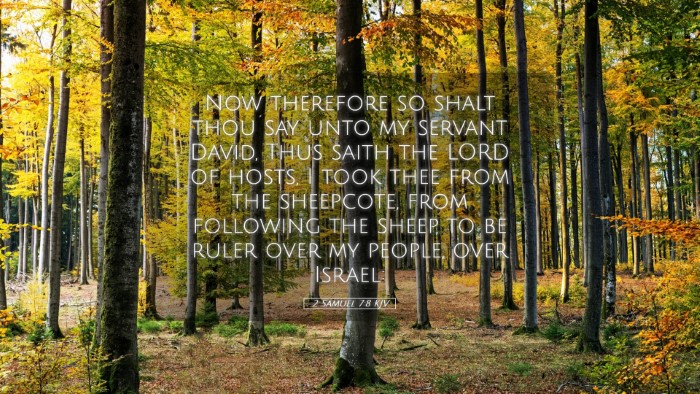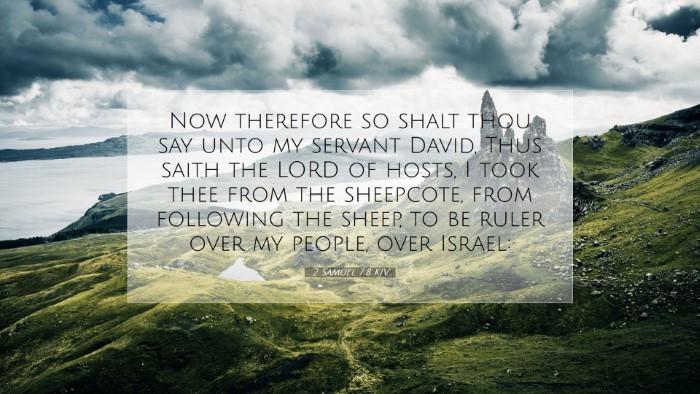Commentary on 2 Samuel 7:8
Verse Context: 2 Samuel 7:8 states, "Now, therefore, thus you shall say to my servant David, ‘Thus says the Lord of hosts: I took you from the sheepfold, from following the sheep, that you should be ruler over My people Israel.’" This verse encapsulates a significant turning point in David’s life and God's covenant with him.
Introduction
This commentary seeks to explore the intricacies of God's message to David through the prophet Nathan in 2 Samuel 7:8. It connects to the broader narrative of God’s covenant with Israel and the significant role David plays in Biblical history. Insights from well-regarded public domain commentaries will be presented to offer a comprehensive understanding of this pivotal moment.
Theological and Historical Insights
The Call of God
Matthew Henry emphasizes that God's selection of David from humble beginnings illustrates God's sovereign choice. David was a shepherd, a role associated with care and responsibility, which would later reflect his leadership style over Israel.
Albert Barnes elaborates that this was not merely a promotion but a divine calling. The phrase "I took you from the sheepfold" signifies God's initiative in David’s rise, reminding readers that God often uses the least likely individuals to fulfill His divine purposes.
The Role of Nathan the Prophet
Here, the prophet Nathan functions as a mouthpiece for God’s revelation to David. Adam Clarke points out that Nathan’s involvement showcases the relationship between prophetic ministry and kingship in Israel. The declaration is not just an announcement; it cements David’s identity as a divinely chosen leader.
The Nature of Divine Covenant
In this verse, we see the beginning of what will be a profound covenant with David, as elaborated further in 2 Samuel 7:12-16.
- Covenant with David: Henry notes that this covenant is unconditional and irrevocable, highlighting God’s steadfast love and faithfulness.
- Significance of Leadership: Barnes reflects on the implications of David’s leadership over Israel—asserting that kingship is ordained by God to ensure that His plans for His people are carried out.
- God's Sovereignty: Clarke emphasizes God’s sovereign choice over man’s qualifications, underscoring that God sees beyond societal norms and values.
Implications for Modern Believers
Understanding Divine Purpose
This verse serves as a reminder that every believer has a purpose that God has predetermined. Just as David was taken from obscurity and placed into a role of significance, believers today are called to fulfill God’s will in their lives, no matter their past or present circumstances.
The Example of Humility
David’s humble beginnings remind us of the values of servanthood and humility. Henry points out that God’s choice of David, a lowly shepherd, to lead His people suggests that God values the heart over external qualifications. This principle invites pastors and leaders to reflect on their motivation and the need for genuine humility in leadership.
Faithfulness in Calling
As David was called to shepherd God’s people, contemporary leaders and every Christian are called to live faithfully within their divine appointments. This speaks to the consistency of God’s character in fulfilling His promises, an encouragement for today’s church to rely on God’s strength and guidance.
Conclusion
2 Samuel 7:8 marks a pivotal moment in the Biblical narrative that highlights God’s sovereignty, choice, and covenant. The insights gathered from the commentaries of Matthew Henry, Albert Barnes, and Adam Clarke provide valuable truths for pastors, students, and theologians alike, encouraging them to understand and embrace their calling with humility and faithfulness.


